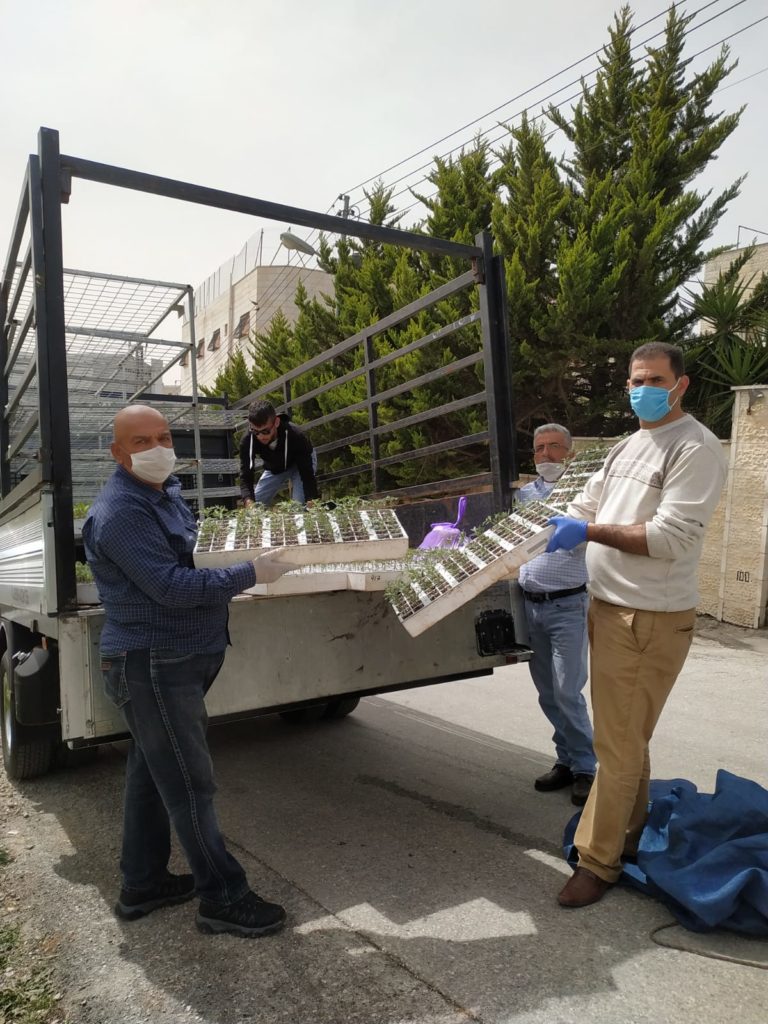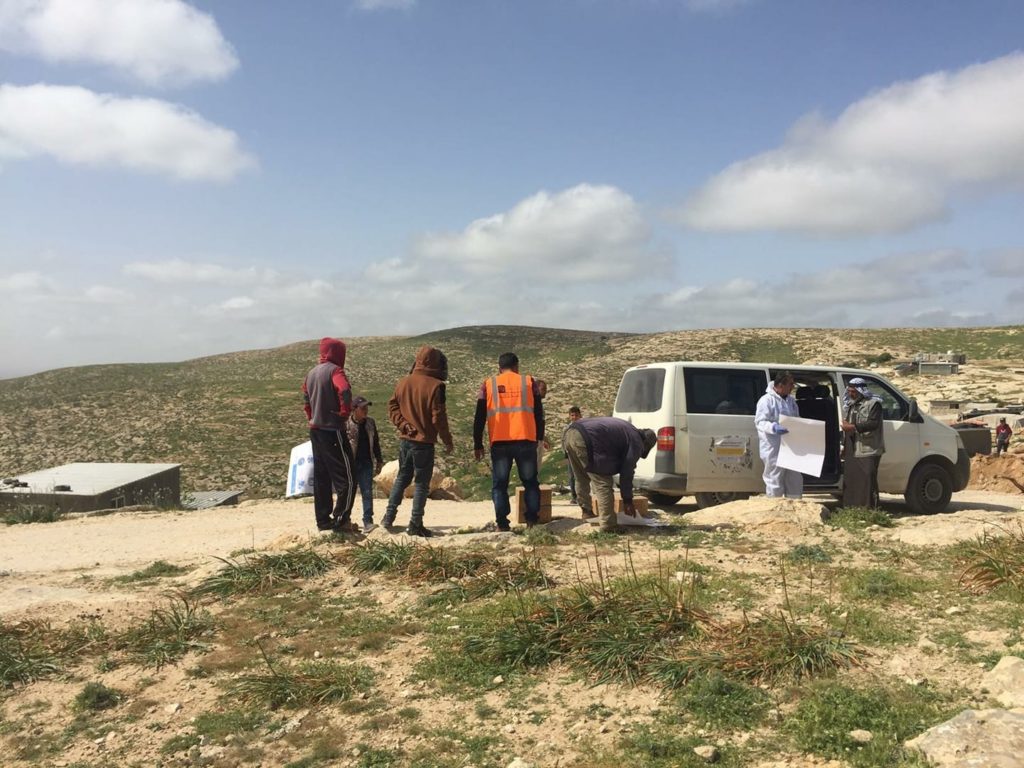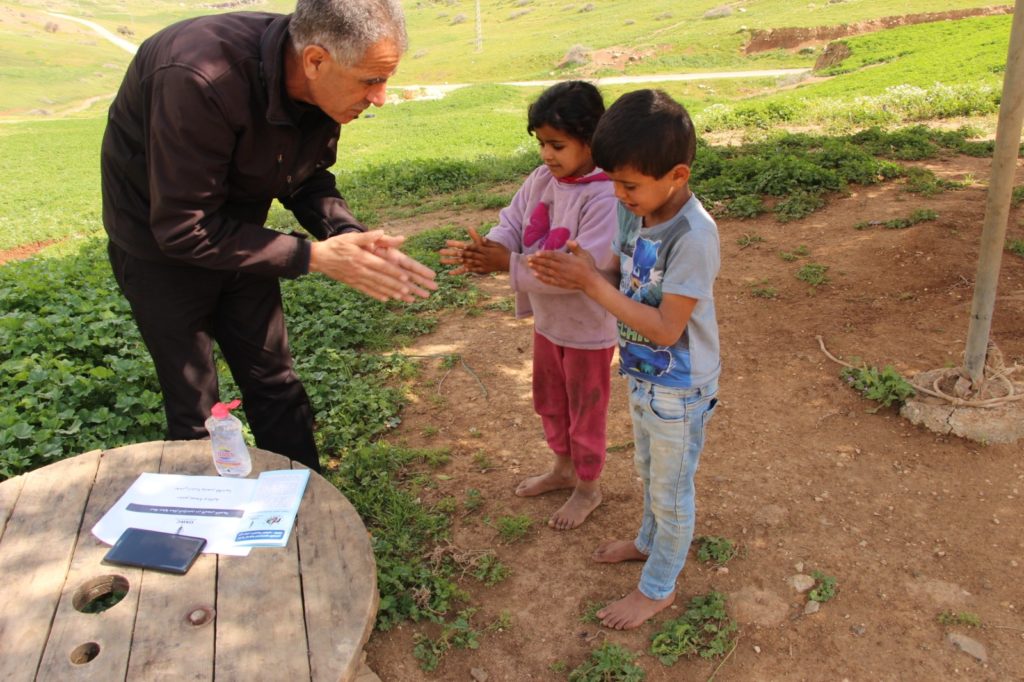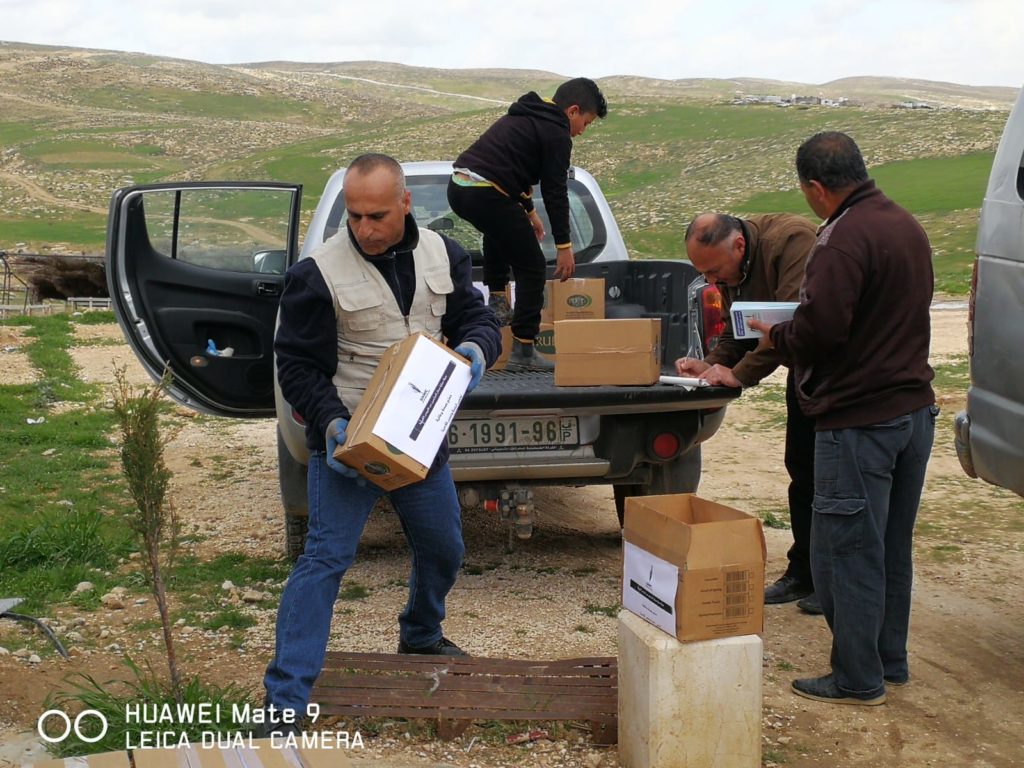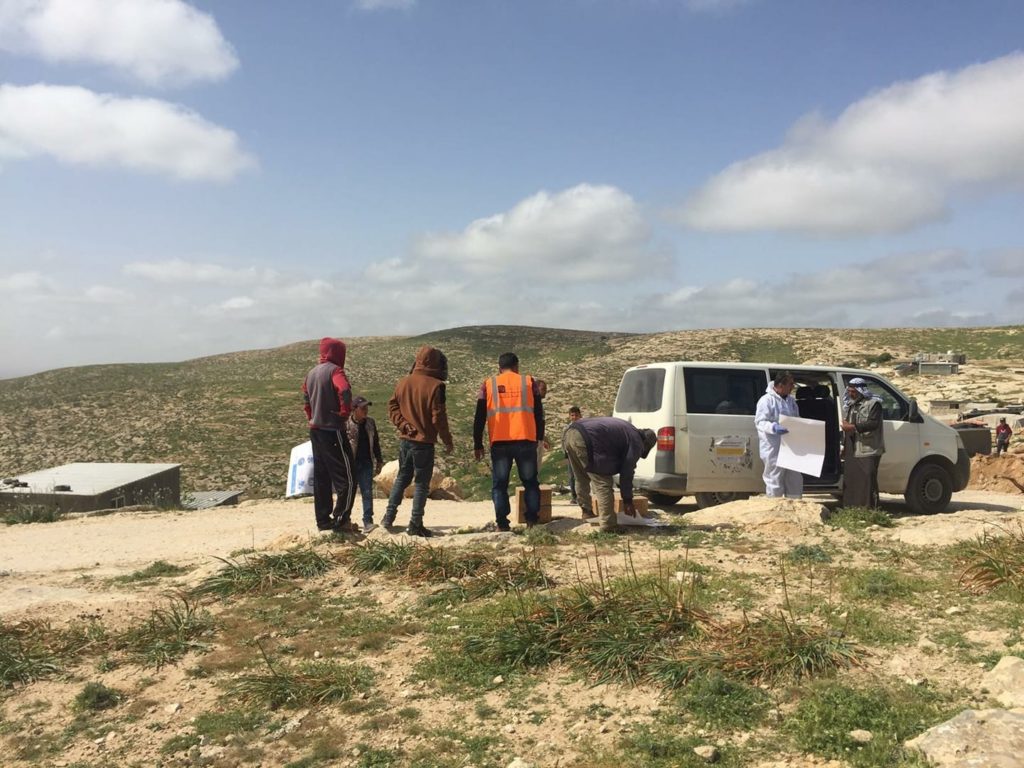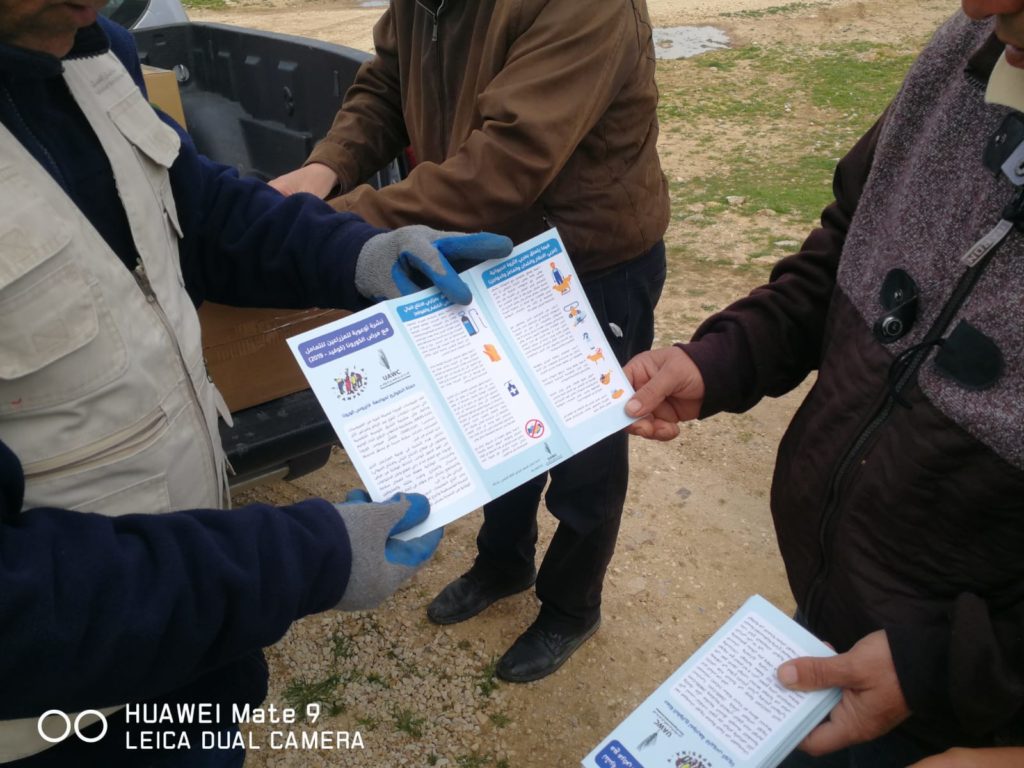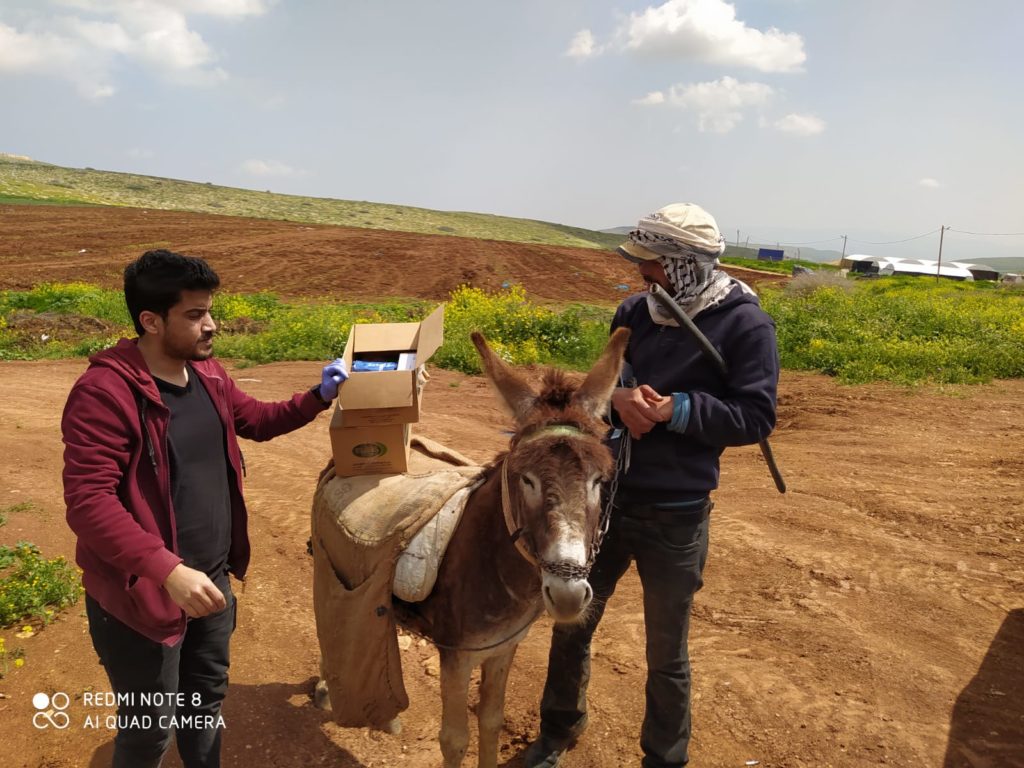According to official statistics of the Palestinian Ministry of Health, the total number of recorded cases infected with the coronavirus as of April, 10,2020 has reached 266 cases and two death cases, 1750 people in quarantine centres, with more than 12342 people in self-quarantine in the West Bank and Gaza Strip. The total number of COVID-19 patients who recovered increased to 45, including nine in the besieged Gaza Strip.
While the number of the infected cases has been increasing, the capabilities of the health sector to deal with this epidemic remain weak, and Palestinians capacities to face the expected outbreak of COVID-19 is fragile, especially in area C. Israel is not being held responsible for the lives of 300,000 people living in area C, where under the international law, Israel is an occupying power, and it should respect its obligations to protect the civilian population and to administer the territory for their benefit. On the contrary, the occupying power is abdicating its primary responsibility towards the health rights of 50,000 Palestinian workers working in Israeli industrial, agricultural, construction, and services sectors. It doesn’t keep the minimum level of prevention measures, which is leading to blatant violations of their rights to health and social protection. On the other hand, the situation in the Gaza Strip is more vulnerable, due to the lack of health capabilities that came as a result of the ongoing Israeli blockade-imposed on Gaza Strip since 2007.
The COVID 19 breakout comes under fragile food security levels. Nearly one-third of the population – 32.7 per cent, or 1.6 million people – are not having the means to afford nutritious food, and food insecurity is high among women – 32 per cent of families headed by women are food insecure.
UAWC’s intervention levels based on food sovereignty principle
UAWC believes that to maintain food security for the Palestinian people and provide nutritious food, we have to replace the concept of food security with the idea of food sovereignty. To secure our food, we need to have autonomy over natural resources, this concept that UAWC has been advocating for more than 17 years is vital to ensure good quality food and \ maintain dignity for peasants.
In this global crisis, UAWC intervening on the following two levels:
Level I: An immediate and widespread response to the needs of farmers and rural communities through the provision of hygiene materials and supplies
Level II: Promoting Peasant’s agroecology which puts forward a concrete alternative to the destructive industrial and neoliberal model of production, distribution and consumption.
UAWC’s campaign “United Against COVID-19.”
1- Needs assessment stage from the 29th of February to the 8th of March, 2020: UAWC conducted a constant and durable communication and needs assessment process all over the West Bank. UAWC’s emergency team conducted dozens of needs assessment field visits that sought to study the real needs of; female and male farmers and agricultural workers in the most vulnerable communities. As a result, we have developed a robust emergency response plan that responses to the basic needs of our communities at the household level and the level of production needs.
2- Accomplishment of phase I of the “Unified against COVID 19” campaign:
UAWC emergency team, which consists of 25 agricultural engineers and agronomist working in coordination with more than 67 peasant committees, more than 300 farmers and 20 women cooperatives and 30 agrarian cooperatives, accomplished the first phase.
The following points summaries the accomplishments of the sterilization campaign in 83 remote communities- with particular focuses on area C-:
1. Promoting philanthropy and social responsibility among communities. On the 23rd of March, driven by strong determination and a real sense of commitment towards our people, UAWC carried out the caravan of hope and philanthropy to Bethlehem. The convoy consisted of 4 trucks loaded with more than 30 tons of necessary vegetable varieties, that were donated by farmers from the Jordan Valley and the northern of the West Bank areas.
2. In response to the lack of availability of hygiene materials, as well as the families financial Inability to provide such materials, UAWC provided 1120 hygiene kits to families in area C.
3. As a part of the UAWC strategy to promote the concept of food sovereignty, it provided vegetable seedlings for 120 home gardens in area C in Hebron Governorate.
4. Public facilities were sterilized in more than 50 rural communities using serialization pumps
5. Conducted 3 Health awareness campss in cooperation with the Union of Health Work Committees in Shaqba, Zakaria and Masafir Yatta. UAWC and UHWC’s trained emergency teams worked to provide specialized health awareness and advice – with the presence of a doctor – through bilateral awareness sessions for parents
6. UAWC conducted 900 bilateral agricultural extension sessions on the means of infection prevention, for agricultural workers and peasants in the farm.
7. Provided 70 family hygiene kits in the village of Shuqba in the Ramallah District, where several cases of infections were recorded.
8. Provided 80 family hygiene kits in Khirbet Al-Ahmar and Abizeeq communities in Tubas Governorate and the northern Jordan Valley
9. Provided 105 family hygiene kits for families in the Khan al-Ahmar community in East Jerusalem ( Al-Mahtush, Khan al-Ahmar, al-Tabbaneh, Abu Falah, al-Karshan, Abu al-Hilu and the main Khan al-Ahmar) in addition to conducting individual awareness session on the means of protection and prevention at the household level and farm level.
UAWC Campaign “Go back to your land and cultivate it
“UAWC has been working hard to prepare more than 300,000 vegetable seedlings for home gardens to be distributed to 3,000 families in area C and remote communities in the West Bank. This initiative comes in line with the MoA and the Palestinian Agricultural Organizations Coalition initiative “Planting one million seedlings “. Between 4-8 April 2020, UAWC has distributed more than 178,000 seedlings, promoting more than 1,900 gardens in 55 rural communities. Our team provided high-quality vegetable seedlings to develop and grow home gardens. Besides, UAWC agronomists and Seeds Bank’s team provided instructions on; means of growing vegetable seedlings and prevention measurements against COVID 19 at the level of family and farm.
Accomplishments of phase I
1. 560 home gardens in Jenin Governorate, where 56,000 vegetable seedlings provided to families in 20 remote communities and villages in Jenin Governorate such as (‘Aba with only 44 households living in area “c”, Al Mutilla with 64 households, and ‘Arabbuna with 175 houses).
2. 270 home gardens in Nablus Governorate, where19,950 vegetable seedlings were provided to families in 20 remote communities and villages in Nablus Governorate such as (Nisf Jubeil with 93 households, Ijnisinya with only 44 households living in the area “c)
3. Accomplishing the first phase of home garden promotion campaign in Tulkarm Governorate. Here, we accomplished 105 home gardens, where 6300 vegetable seedlings were provided to families in 5 communities, villages and Bedouin communities in Tulkarm Governorate such as (Khirbet Jubara which contains 62 households all of them located in Area C, and Kur with only 58 households all based in area C, and Ar- Ras with 128 Households ) .
In Phase II of targeting Tulkarm governorate, UAWC will provide 229 home gardens, with the distribution of 13700 seedlings in 9 additional villages.
4. Accomplishing the first phase of home garden promotion campaign in Hebron Governorate, where we accomplished 867 home gardens , where 6300 vegetable seedlings were provided to families in 5 communities, villages and Bedouin communities such as (Umm al Khair with 138 households , Khallet al Maiyya with 432 households, and Beit’ Amra with 725 households ).
In Phase II of targeting Hebron governorate, UAWC will provide 1370 home gardens, with the distribution of 137,000 seedlings in 9 additional villages and Bedouin communities.
Accelerating the production capacity of UAWC’s Local Seed Bank
The technical team of UAWC’s Local Seed Bank accelerated their efforts to increase the production capacity of the Seed Bank to 150,000 seedlings to contribute to home gardens promotion campaign. They have double their efforts and double their working hours to produce and provide the maximum number of local vegetable seedlings. The Seed Bank’s seedling is characterized by its high adaptation to the climate of Palestine, and such seedings are originated and grown from original Palestinian local seeds that are preserved and multiplied in the laboratories of the Seed Bank in Hebron.
National and international campaigns
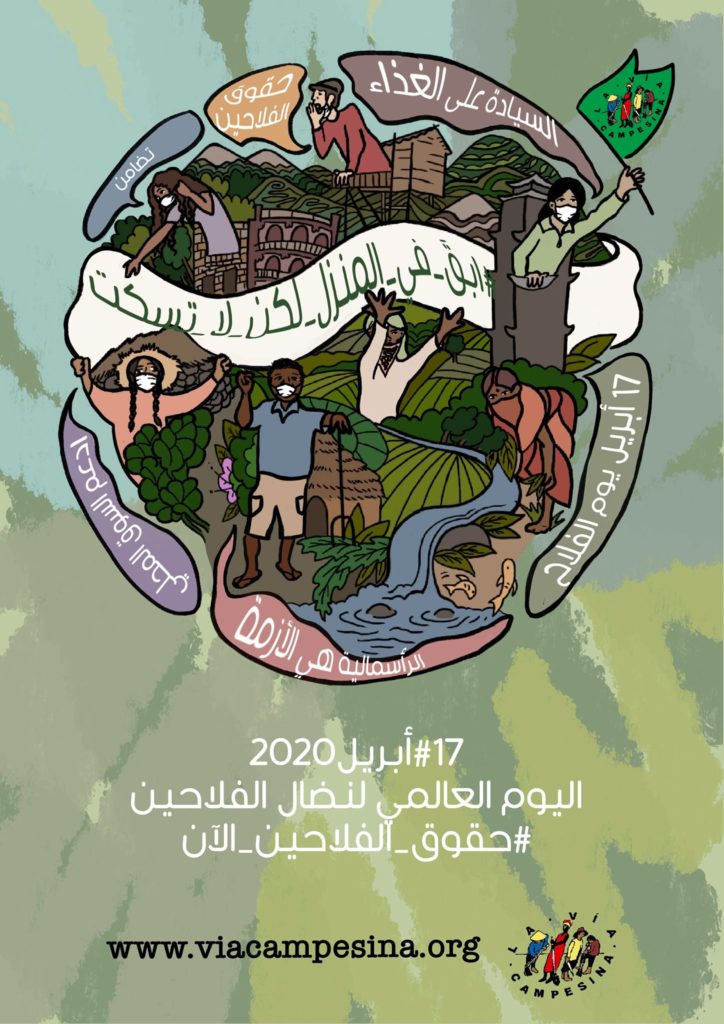
– PNGO Intersectoral Campaign: UAWC has contributed to the launching of PNGO sectoral campaign for the agricultural sector, where urgent intervention areas were defined and coordination efforts to deliver services
– Support and contribute to the national campaign “Planting one million seedlings “, initiated by the MoA and the Palestinian Agricultural Organizations coalition
– UAWC is part of La Via Campesina Global Call to “Stay Home, But Not Silent”, In times of pandemic, peasants are united to feed the people!
LVC and UAWC and ARNA region call upon all government to recognize the vulnerability of the current globalized food system dominated by industrial agriculture, and the dangers it poses to all life forms.
We should learn from this crisis of COVID 19 and invest in building local, resilient and diverse food systems. States must begin by implementing ‘food sovereignty’ through agroecological production and protection of Rights of Peasants and Other People Working in Rural Areas, as articulated in the United Nations Declaration, approved in 2018 (UNDROP)
Phase III to be launched on Monday, the 13th of April, 2020 UAWC will start phase III on Monday the 13th of April, by targeting new 81 rural and Bedouin communities including Palestinian refugee camps, East and Northwest Jerusalem villages, and Ramallah villages.
We are working to outreach more than 9,000 families, providing them with additional home gardens, hygiene kits for households, hygiene kits for women and sterilizing public facilities. We are also providing food and vegetable kits and continue to raise awareness on prevention and protection measures to avoid the spread of the COVID 19 in households and farms.
#United_Against_COVID-19
#Go_back_to_your_land _and_cultivate_it
#Stay_Home_But_Not_Silent


